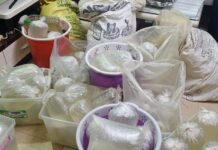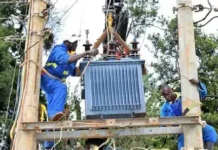Over 1,200 women involved in the beadwork industry across Laikipia, Isiolo, Samburu, and Marsabit counties have donated Ksh 4.6 million, equivalent to 5% of their annual earnings, to support environmental conservation efforts within nine community conservancies.
The contribution, facilitated by the Northern Rangelands Trust (NRT), aims to bolster the operations of community wildlife conservancies and promote sustainable environmental practices in the face of climate change and persistent droughts in the region.
Speaking during the cheque issuance and awards ceremony held at Kalama Community Wildlife Conservancy in Samburu County, NRT Beadworks Production Manager Salma Lekomet confirmed that the women receive weekly payments for their beadwork and voluntarily allocate a portion of their income to fund conservation initiatives.
The benefitting conservancies include Lekuruki, Naibung’a Lower, Naibung’a Central, and Ilngwesi in Laikipia; Leparua in Isiolo; Melako in Marsabit; and Kalama, Sera, and Westgate in Samburu.
Marsabit Deputy Governor Solomon Gubo and Mashinani Works CEO Vishal Shah, who graced the event as chief guests, praised the initiative as a model for grassroots-driven climate resilience and women’s economic empowerment. They encouraged women to lead in conservation, highlighting their pivotal role in community development.
“The beadwork program has transformed our lives,” said Pamela Murijo, a beader from Ilngwesi Conservancy in Laikipia. “We can now provide for our families and have gained respect in our communities.”
Maria Lekidaiyo from Melako Conservancy in Marsabit and Joyce Lerukai from Kalama in Samburu echoed the sentiment, noting that unlike livestock, vulnerable to drought and cattle rustling, beadwork offers stable, year-round income.
NRT provides the women with materials, training, and access to international markets. The women are paid every Friday based on their output, with earnings ranging up to Ksh 10,000 per person weekly during peak periods.
The women’s initiative stands as a powerful example of how traditional art, when paired with structured support, can drive both economic and environmental transformation in vulnerable communities.
Written By Rodney Mbua



















